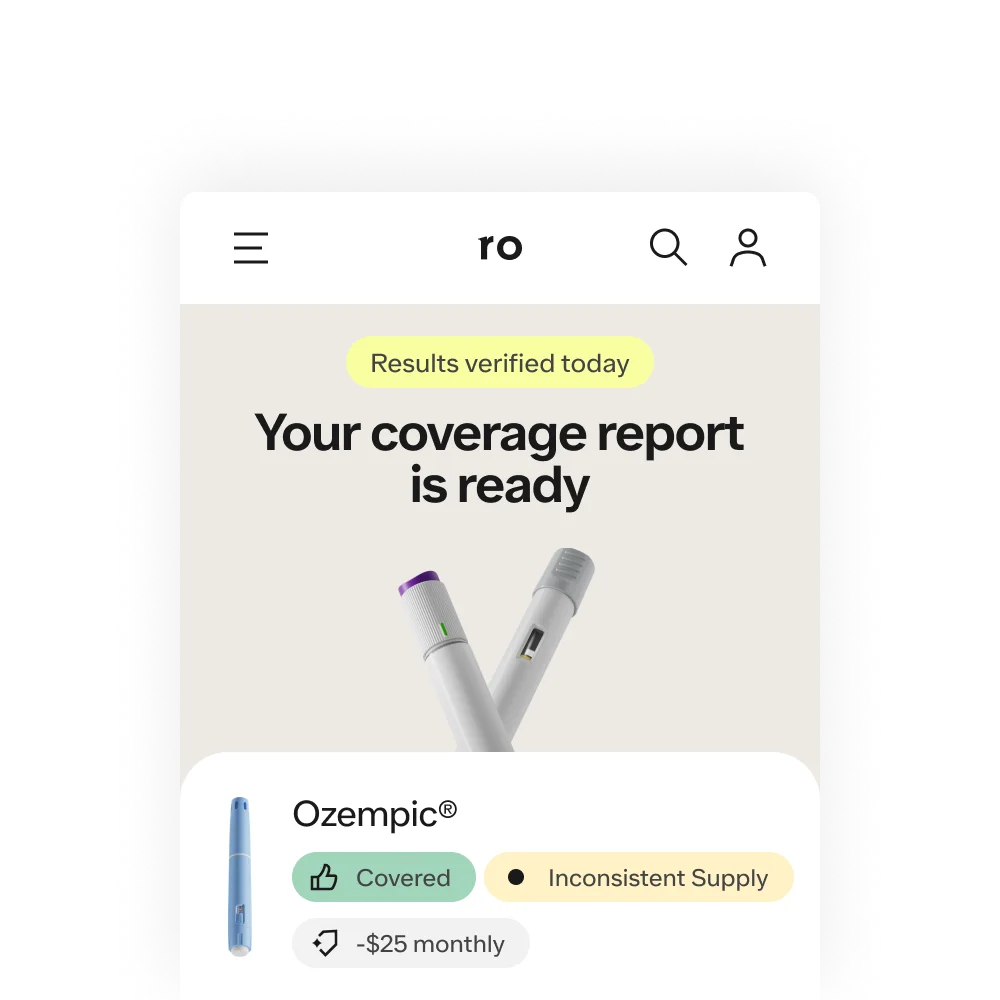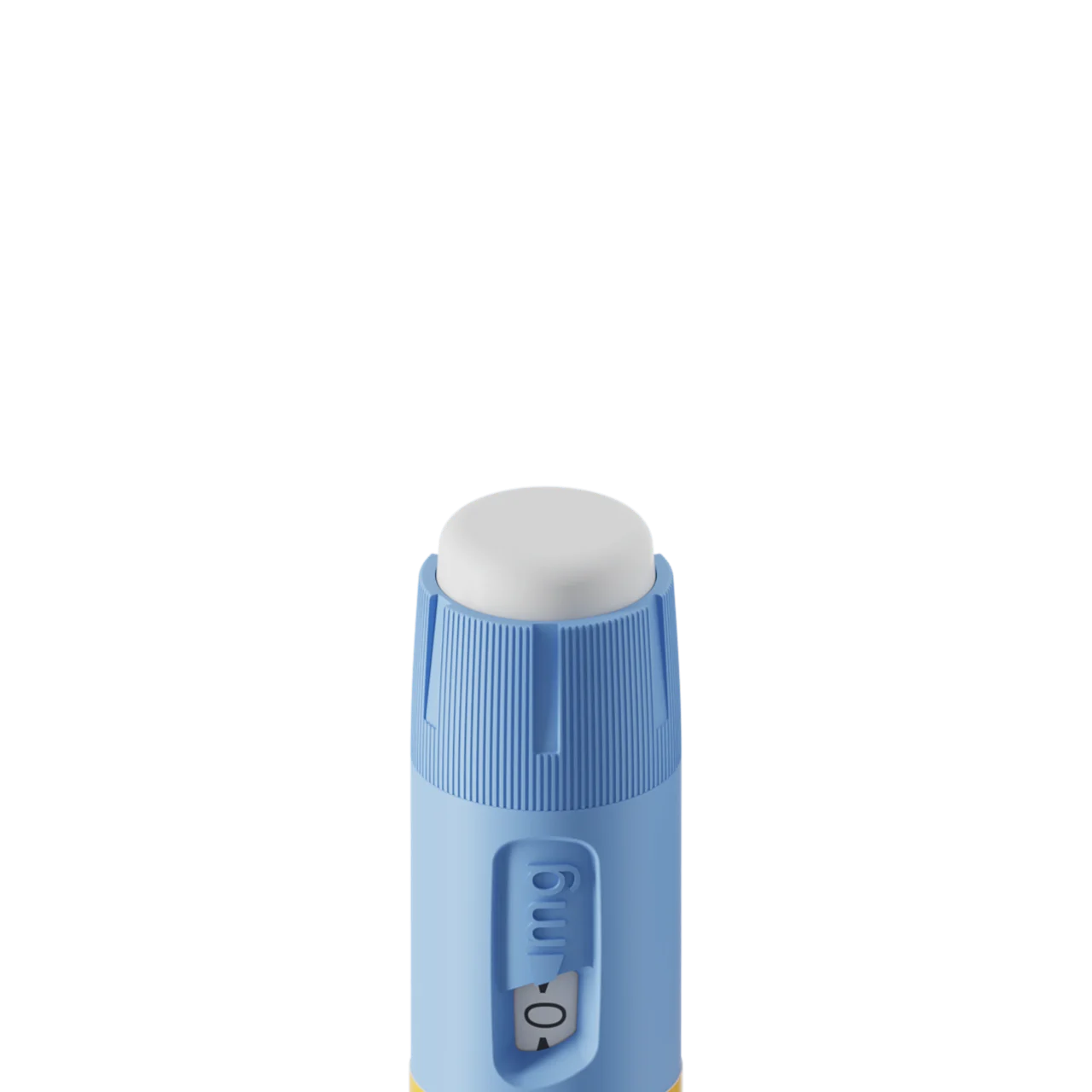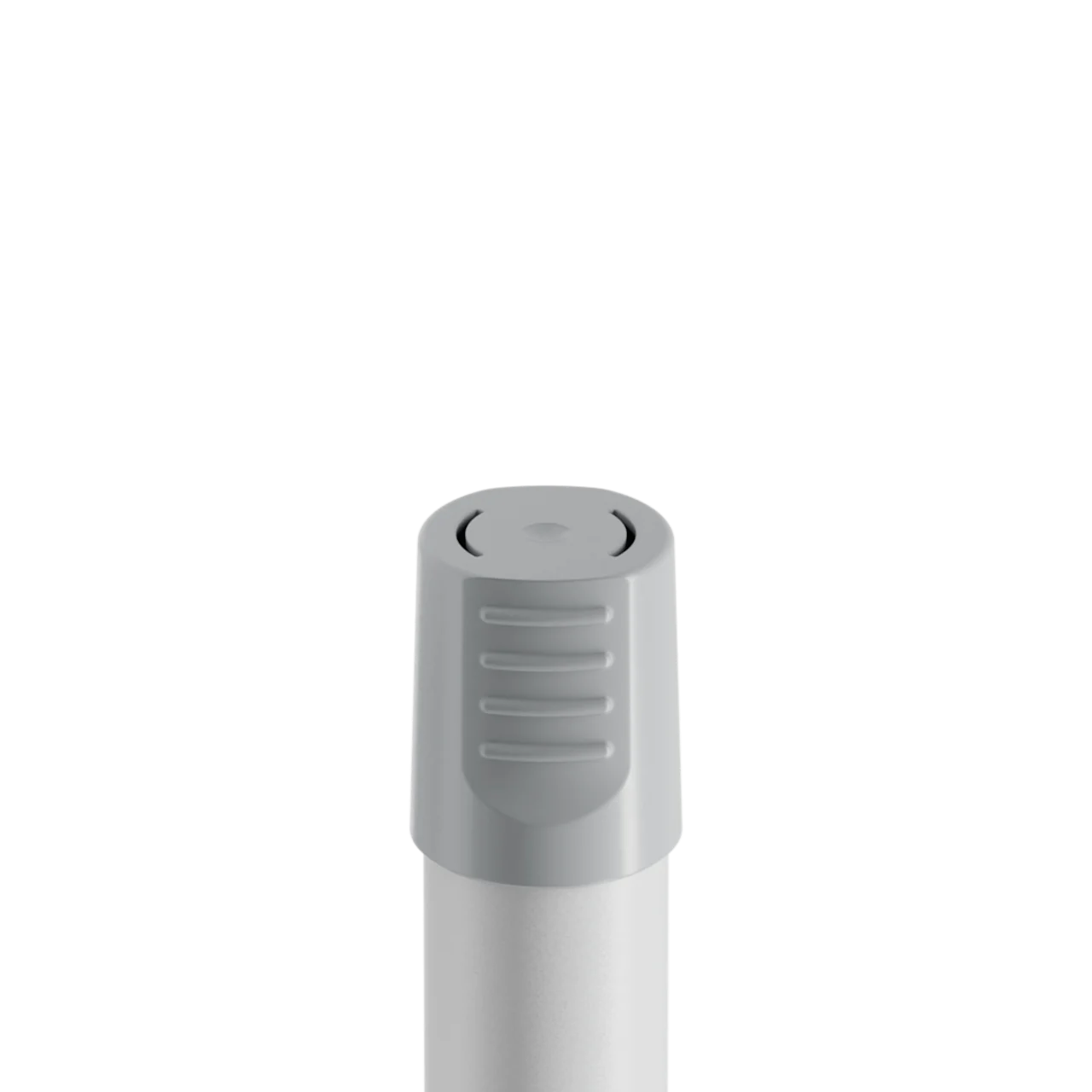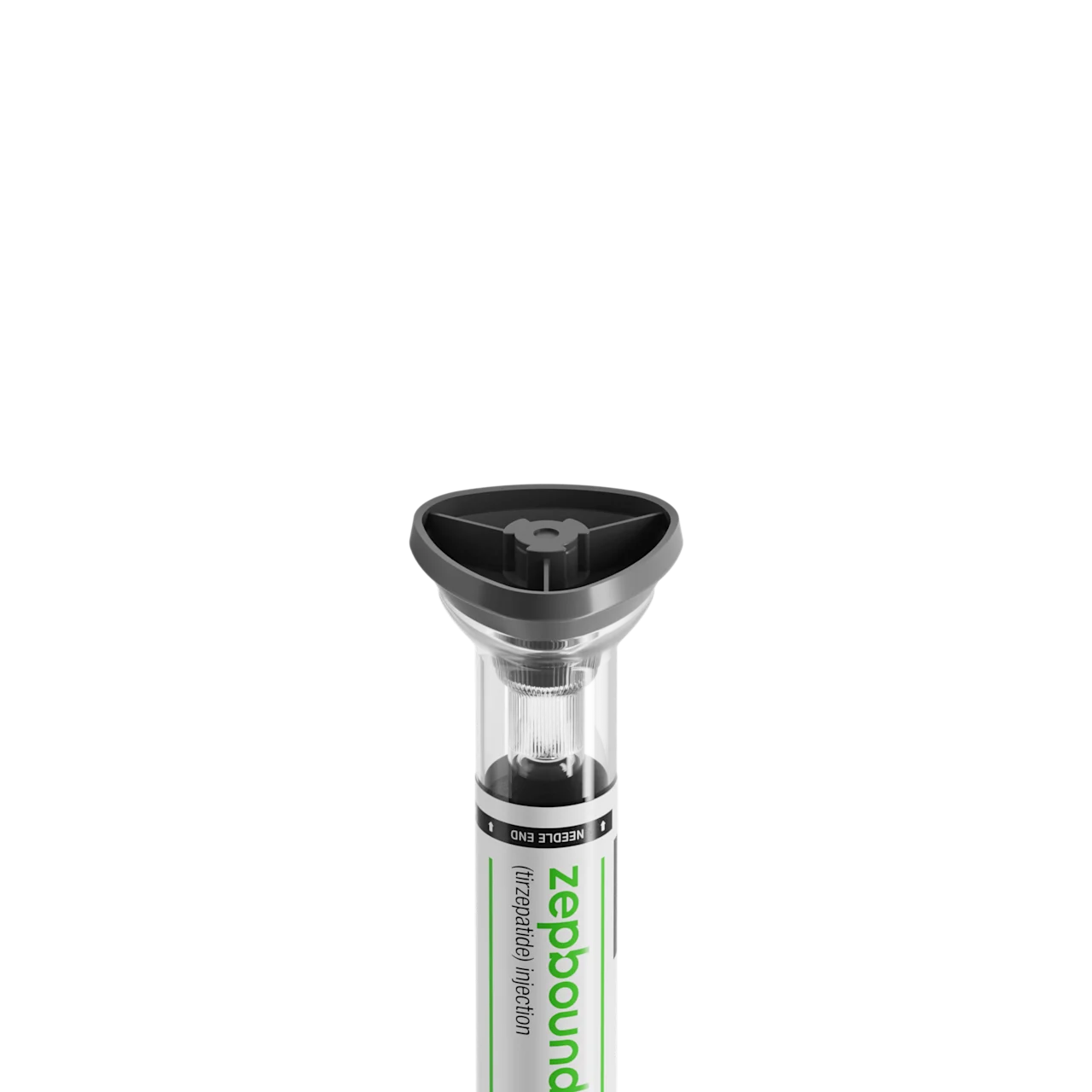Key takeaways
Many healthcare providers are completely open to prescribing weight loss medication to patients who could safely benefit from them, so there’s no need to feel embarrassed about bringing it up at your next appointment.
Your healthcare provider will likely want to discuss some key factors before prescribing weight loss medications, including your weight loss goals, lifestyle, and medical history.
Weight loss pills and injections are both potential options, though there are some key differences between them you should know.
Here's what we'll cover
Key takeaways
Many healthcare providers are completely open to prescribing weight loss medication to patients who could safely benefit from them, so there’s no need to feel embarrassed about bringing it up at your next appointment.
Your healthcare provider will likely want to discuss some key factors before prescribing weight loss medications, including your weight loss goals, lifestyle, and medical history.
Weight loss pills and injections are both potential options, though there are some key differences between them you should know.
Weight can be a sensitive topic for many people. If you’re wondering how to ask your doctor for weight loss pills, the good news is it’s probably easier than you think. With increasing options available on the market, many healthcare providers are routinely being asked how to get weight loss medication, and many will happily prescribe it if they determine it’s safe and helpful to do so.
“Since there are so many health benefits to the newer weight loss medications, most healthcare providers are already on board with helping patients take advantage of these medications, not only to shed weight but to also optimize their glucose and cholesterol levels,” explains Siamak Agha, MD, a board-certified plastic surgeon.
However, it’s not quite as simple as strolling in and ordering an Ozempic prescription the way you would order a coffee. We’ve got all the info you need if you’re wondering, “How do you ask your doctor for weight loss pills or injections?”
How to talk to your doctor about weight loss medication: 10 ways to prepare
If you’re nervous about initiating the conversation with your healthcare provider, preparing what you want to say ahead of time might ease your anxiety. Eric Smith, DO, bariatric surgeon and medical director of POP Recovery Systems, suggests a straightforward approach like the following:
"I’ve been struggling with my weight and its impact on my health. I’m interested in learning more about weight loss medications and whether they might be an option for me."
As part of the conversation about weight management, you’ll want to come in prepared to speak about the following:
1. Why are you interested in losing weight?
“Patients should share their motivations, including medical issues like joint pain, fatigue, fertility struggles, reflux, or more serious coexisting conditions like diabetes, hypertension, sleep apnea, or PCOS,” Dr. Smith says. “It’s okay to express self-esteem concerns, as mental health is a crucial aspect of overall well-being.”
2. Do you have any medical conditions, and how are you treating them?
Dr. Smith notes you should come prepared to share information about coexisting medical conditions and, if relevant, how your weight has impacted those issues. You’ll also want to bring information about any medications or supplements you currently take, to give your provider a full picture of your health and to determine which weight loss medications are safe for you to take.
3. What are your weight loss goals?
This could be a specific number you’d like to see on the scale or something less data-driven, like, “I’d like to be able to walk up a flight of stairs without feeling winded” or “I’d like to lower my risk of cardiovascular disease.”
4. What weight loss methods have you already tried?
Dr. Smith says a provider will likely want to review your history of weight loss attempts, including methods, duration, and effectiveness. Think about what you’ve tried in the past. What was at least somewhat successful, if anything?
5. What does your diet look like?
Your provider will almost certainly ask about this aspect of your lifestyle in a conversation about getting to a healthy weight. They might ask about the types of food you eat, how often you eat throughout the day, and which food cravings you have, if any. If you have a couple of weeks before your appointment, now is a great time to begin tracking your daily diet so you’re ready with this information when your healthcare provider asks for it.
6. How is your sleep quality?
According to research published in 2022, insufficient sleep and circadian misalignment (when your internal body clock is out of sync with your daily schedule or environment) are associated with weight gain and obesity. Your healthcare provider will likely want to consider whether poor sleep is part of the picture when it comes to your weight concerns.
7. What are your exercise habits?
Your healthcare provider will also likely ask about your physical activity. A large review study from 2021 concluded that exercise training improves body weight and body composition in adults with overweight or obesity. It’s likely your provider will suggest exercises for weight loss in addition to using weight loss medication. The benefits of exercise go far beyond weight loss. Exercising can also reduce your risk of high blood pressure, diabetes, stroke, cancer, and depression.
8. What is your mental health status?
Chronic stress, depression, and anxiety can impact your weight by affecting your eating patterns. In some cases, the medications you take to treat these conditions can also affect your weight. Dr. Smith notes that a healthcare professional may also ask you about your willingness to incorporate mental health support. It’s all part of the picture when it comes to your overall health and wellness.
9. How much alcohol do you drink?
Be prepared to share how many drinks you have per week; your healthcare provider won’t judge you, no matter your answer. Alcohol is associated with increased calorie intake and, in the case of binge drinking, an increased risk of obesity. Interestingly, there are some early reports suggesting that certain weight loss medications decrease the urge to drink. If quitting drinking or reducing the amount you drink is one of your health goals, be sure to mention it to your provider.
10. What does the rest of your lifestyle look like?
“We want to address the whole you, so please come prepared with knowledge of all of your lifestyle choices,” says Supriya Rao, MD, a quadruple board-certified physician in internal medicine, gastroenterology, obesity medicine, and lifestyle medicine. Don’t be surprised if your healthcare provider asks questions about things like how you manage stress, whether you smoke tobacco or consume other drugs, what your work-life balance looks like, or anything else that might help them understand what’s going on with your weight loss journey.
Remember, your healthcare provider isn’t there to judge you. There’s no reason to feel embarrassed to share the full picture of your health with your healthcare provider, even if that means telling them you don’t really exercise or you eat ice cream every night. Sharing honestly will allow your provider to make informed recommendations, and there’s no shame in trying to improve your health through whatever means are available to you.
“When improved lifestyle choices aren’t enough, these medications can quite frankly be life-saving,” Dr. Rao says. “Medications have helped dozens of my patients achieve a healthier weight and reverse some of their chronic medical conditions when used as part of a comprehensive lifestyle change.”
Which weight loss medications should you ask about?
There are a lot of weight loss medications on the market, including weight loss pills and injections. If you don’t have a medical background, navigating weight loss medication options can feel overwhelming. Here’s a breakdown to help you prepare. Having an idea of different medications available and how they work alongside a healthy diet and exercise routine will be valuable in your conversation with your healthcare provider.
Weight loss pills
According to Richa Mittal, MD, a board-certified internal medicine physician and founder of Radiant Health Dallas, weight loss pills work by reducing appetite and cravings and can help a person lose weight by creating a calorie deficit. She notes that because they have been around longer, they are typically more cost-effective than injectable medication. “Typical weight loss seen is between 5–7% of body weight, although we can see more depending upon individual response,” she explains.
The weight loss pills you should be aware of going into your conversation are:
Contrave (naltrexone/bupropion). This prescription weight loss medication is a combination of naltrexone and bupropion. Naltrexone is an opioid antagonist that’s typically used to treat alcohol and opioid use disorders, while bupropion is an antidepressant that’s also used to curb smoking. Researchers don’t entirely know why the combination of these two medications helps with weight loss, but one theory is that it works by reducing food cravings and promoting feelings of fullness. Bupropion is typically not prescribed in those who have a history of seizures.
Adipex-P (phentermine). Adipex-P is the brand name for phentermine, an appetite suppressant that can help with weight loss. It’s approved by the US Food and Drug Administration (FDA) for short-term use for up to 12 weeks, though some healthcare providers prescribe it off-label for longer-term use. It can also be prescribed as needed. It may increase blood pressure in some people.
Qsymia (phentermine/topiramate). This medication combines phentermine, an appetite suppressant, with topiramate, a medication that reduces appetite, alters food reward pathways, increases fat burning, and regulates hormones. Qsymia is usually prescribed to people with a body mass index (BMI) of 30+ or 27+ if they have other conditions like diabetes or high blood pressure.
Xenical and/or Alli (orlistat). Orlistat is a weight loss medication that works by reducing the amount of fat your body absorbs from the food you eat. It’s sold under the names Xenical and Alli. Xenical is prescription-only; Alli is an over-the-counter, lower-dose version of the same medication. Side effects typically include oily stools and bloating since the fat is excreted in your waste instead of being absorbed by the body.
Weight loss injections
Injectable medications generally fall under a class of drugs called GLP-1s (or glucagon-like peptide-1 receptor agonists). They work “by causing delayed stomach emptying that leads to fullness, as well as stimulating centers in the brain that regulate appetite and in the pancreas that regulate blood sugar,” explains Dr. Mittal.
The weight loss injections to read up on before talking to a provider include:
Wegovy (semaglutide). Wegovy is the brand-name version of a medication called semaglutide, which helps with weight loss by acting as a natural hormone your body uses to regulate blood sugar and appetite. Semaglutide is a GLP-1 medication that gets injected once per week.
Zepbound (tirzepatide). Like Wegovy and other GLP-1s, Zepbound helps with weight loss by slowing down digestion and reducing appetite. It accomplishes this by targeting the receptor of GLP-1, a gut hormone. What sets Zepbound apart is that it also targets an additional receptor for glucose-dependent insulinotropic polypeptide (GIP), meaning it’s particularly effective for weight loss. It’s injected once per week.
Saxenda (liraglutide). Saxenda is the brand-name version of the weight loss medication liraglutide. It’s a GLP-1 agonist that works to limit your appetite by acting like a hormone that slows down your gut. It also lowers blood sugar by stimulating the release of insulin in the presence of elevated blood sugars. It’s injected once per day.
In addition to the above drugs, which are all FDA-approved for weight loss, there are other medications that can be prescribed off-label for weight loss, including Ozempic, Mounjaro, Trulicity, and Rybelsus. In this context, “off-label” means these medications were developed and have FDA approval to treat other conditions (like type 2 diabetes), but they can also be used to help people lose weight.
When should you ask about weight loss pills?
Dr. Smith says that weight loss pills are recommended over injections when injections are cost-prohibitive or not covered by insurance. Other reasons he says a person might opt for pills over injections is if the side effects from injections are intolerable or if they have an aversion to needles.
You’ll likely qualify for weight loss pills if you’re over 18 and meet either of the following criteria:
Obesity with a BMI of 30 kg/m2 or more
Overweight with a BMI of 27 kg/m2 or more, along with a weight-related health problem, like high blood pressure, type 2 diabetes, or heart disease
When should you ask about weight loss injections?
Weight loss injections may be the best solution for you if you have a significant weight-related medical condition, such as type 2 diabetes, according to Dr. Smith. Injections also generally result in more effective weight loss. He explains that, for people who respond to pills, they typically result in 5–7% weight loss—studies on orlistat, phentermine/topiramate, and naltrexone and bupropion all support this—while the results from injections are often more dramatic.
Research published in the New England Journal of Medicine found that approximately 70% of participants with obesity or overweight taking semaglutide for 68 weeks achieved weight loss of at least 10%, about 50% achieved weight loss of at least 15%, and one-third lost at least 20% of their baseline weight.
For Wegovy, Zepbound, and Saxenda, you’ll likely qualify with similar criteria as above: a BMI of 30 or more, or a BMI of 27 or more with a weight-related health problem (such as type 2 diabetes or hypertension). Wegovy and Saxenda can also be prescribed to children 12 years of age or older who meet certain criteria.
How to prepare for your visit
In addition to gathering the information mentioned earlier in this article and researching common weight loss drugs, you can take a few more steps to prepare for your appointment. Write down some notes on which weight loss options interest you and why, and think of some questions you’d like to ask your provider about different medications.
Questions to ask your healthcare provider about weight loss pills and medications
“It’s essential for patients to ask their healthcare provider comprehensive and detailed questions, especially if this information is not offered upfront,” Dr. Smith says.
Some of the questions he recommends asking are:
What weight loss medications are available, and which one do you think is best for my situation?
Why do you recommend this particular medication for me?
What are the potential side effects of this medication, and how common are they?
Are there specific side effects that might affect my current health conditions or medications?
Will I need to take this medication for the rest of my life?
What happens if I stop taking it? Will I regain the weight I lose?
What will this medication cost with and without insurance?
If my insurance stops covering it, what are my options?
What kind of lifestyle changes will I need to make while on this medication?
Does your office provide support for these changes, such as nutritional counseling, exercise planning, or mental health services?
Dr. Rao also suggests asking questions related to weight loss in general, such as:
Are there non-medication alternatives I should consider first?
How will you monitor my progress and health during treatment?
What will check-ins look like?
What if it doesn't work for me?
What should my realistic expectations be?
What happens if I hit a plateau?
Can my primary doctor prescribe me weight loss pills?
Yes, your primary care provider can prescribe weight loss pills and injectable medications. However, they may refer you to an obesity medicine specialist, bariatric surgeon, or endocrinologist if your case is particularly complex, according to Dr. Smith.
“Specialists often have the experience to optimize dosing and manage potential side effects,” he notes. “They are also more likely to provide or coordinate the necessary support systems, such as nutrition counseling, exercise planning, and mental health support, to ensure long-term success.”
Rx weight loss with Ro
Get access to prescription weight loss medication online
What if your provider won’t prescribe you weight loss pills?
“If your provider won’t prescribe weight loss medication, it’s important to approach the situation with open communication,” Dr. Smith says. “First, ask your physician for their reasoning—whether it’s due to medical contraindications, other health concerns, or their professional perspective on your specific case. You have the right to understand their rationale and feel comfortable with their explanation.”
Dr. Rao notes that a healthcare provider may not prescribe weight loss medication to you if you have an eating disorder, are pregnant, or have certain medical conditions. Dr. Mittal adds that people who are underweight, have a normal range of body fat percentage, or just want to lose a few pounds for “aesthetic” purposes are generally not good candidates for medication.
If your provider won’t prescribe weight loss pills or injections, ask them which weight loss strategies they recommend for you and when you might begin to see a change. Schedule your follow-up appointment so they can stay up-to-date on how their recommendations are working for you.
“If you feel your provider doesn’t support weight loss medications simply because they don’t believe in them or hasn’t provided a clear medical explanation, it may be time to seek another opinion,” Dr. Smith says. “Look for a provider who will take the time to discuss your concerns, provide evidence-based guidance, and work with you to develop a personalized treatment plan.”
Bottom line: asking your doctor for weight loss pills
Weight loss medication is a valid option for many people, especially those who have struggled to lose weight through other methods. There’s no shame in speaking with your healthcare provider about your options, and you may feel more confident doing so if you go into your appointment feeling prepared.
Be prepared to speak with your healthcare provider about all aspects of your lifestyle. Your healthcare provider will likely ask you questions about your motivations for losing weight, other weight loss methods you’ve tried, your typical diet and exercise routine, your mental health, your alcohol consumption, and other factors.
Weight loss pills and weight loss injections are both potential options, but there are some key differences. Weight loss pills have been on the market longer and tend to be less expensive than injections. Injections often yield quicker and more dramatic results but can be costly and are not right for everyone. You can also explore the off-label use of certain medications to help you lose weight. Your doctor will help you determine the best option for you.
Come to your appointment with an idea of the questions you’d like to ask your provider. Experts recommend asking about the side effects, cost, necessary lifestyle changes, when you can expect to see results, and what happens when it’s time to discontinue the medication.
DISCLAIMER
If you have any medical questions or concerns, please talk to your healthcare provider. The articles on Health Guide are underpinned by peer-reviewed research and information drawn from medical societies and governmental agencies. However, they are not a substitute for professional medical advice, diagnosis, or treatment.
Ozempic Important Safety Information: Read more about serious warnings and safety info.
GLP-1 Important Safety Information: Read more about serious warnings and safety info.
Wegovy Important Safety Information: Read more about serious warnings and safety info.
Zepbound Important Safety Information: Read more about serious warnings and safety info.
Saxenda Important Safety Information: Read more about serious warnings and safety info.
Mounjaro Important Safety Information: Read more about serious warnings and safety info.
References
Bellicha, A., van Baak, M. A., Battista, F., et al. (2021). Effect of exercise training on weight loss, body composition changes, and weight maintenance in adults with overweight or obesity: An overview of 12 systematic reviews and 149 studies. Obesity Reviews: An Official Journal of the International Association for the Study of Obesity, 22(Suppl 4), e13256. doi: 10.1111/obr.13256. Retrieved from https://onlinelibrary.wiley.com/doi/10.1111/obr.13256
CADTH Reimbursement Review. (2022). Semaglutide (Wegovy).: Therapeutic area: Weight management [Internet]. Canadian Agency for Drugs and Technologies in Health. Retrieved on Feb. 9, 2025 from https://www.ncbi.nlm.nih.gov/books/NBK601688/
Chaput, J. P., McHill, A. W., Cox, R. C., et al. (2023). The role of insufficient sleep and circadian misalignment in obesity. Nature Reviews Endocrinology, 19(2), 82–97. https://doi.org/10.1038/s41574-022-00747-7. Retrieved from https://www.nature.com/articles/s41574-022-00747-7
Dietary Guidelines Advisory Committee. (2020). Scientific report of the 2020 dietary guidelines advisory committee: Advisory report to the secretary of agriculture and secretary of health and human services. doi: 10.52570/dgac2020. Retrieved from https://www.dietaryguidelines.gov/2020-advisory-committee-report
McKinney, J., Lithwick, D. J., Morrison, B. N., et al. (2016). The health benefits of physical activity and cardiorespiratory fitness. BCMJ, 58(3), 131–137. Retrieved from https://bcmj.org/articles/health-benefits-physical-activity-and-cardiorespiratory-fitness
Siebenhofer, A., Winterholer, S., Jeitler, K., et al. (2021). Long-term effects of weight-reducing drugs in people with hypertension. The Cochrane Database Of Systematic Reviews, 1(1), CD007654. doi: 10.1002/14651858.CD007654.pub5. Retrieved from https://pmc.ncbi.nlm.nih.gov/articles/PMC8094237/
Sjöström, L., Rissanen, A., Andersen, T., et al. (1998). Randomised placebo-controlled trial of orlistat for weight loss and prevention of weight regain in obese patients. Lancet (London, England), 352(9123), 167–172. doi: 10.1016/s0140-6736(97)11509-4. Retrieved from https://pubmed.ncbi.nlm.nih.gov/9683204/
U.S. Food and Drug Administration (FDA). (2021). FDA approves weight management drug for patients aged 12 and older. Retrieved on Feb. 9, 2025 from https://www.fda.gov/drugs/news-events-human-drugs/fda-approves-weight-management-drug-patients-aged-12-and-older
U.S. Food and Drug Administration (FDA). (2022). ZEPBOUND™ (tirzepatide) Injection, for subcutaneous use. Retrieved from https://www.accessdata.fda.gov/drugsatfda_docs/label/2023/217806s000lbl.pdf
Wilding, J. P., Batterham, R. L., Calanna, S., et al. (2021). Once-weekly semaglutide in adults with overweight or obesity. New England Journal of Medicine, 384(11), 989–1002. doi: 10.1056/nejmoa2032183. Retrieved from https://www.nejm.org/doi/full/10.1056/NEJMoa2032183?
Yanovski, S. Z. & Yanovski, J. A. (2014). Long-term drug treatment for obesity: a systematic and clinical review. JAMA, 311(1), 74–86. doi: 10.1001/jama.2013.281361. Retrieved from https://pubmed.ncbi.nlm.nih.gov/24231879/



















